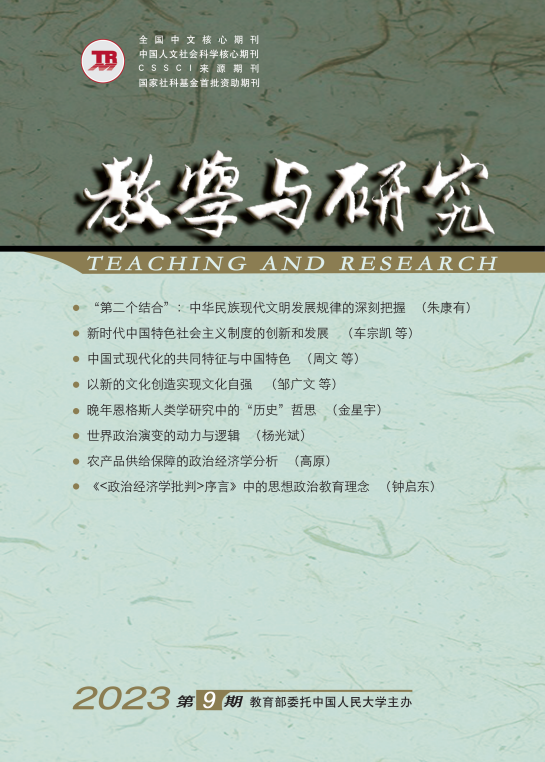As a historical theory that analyzes the general laws of the development of human society, Marxist philosophy of history is the condensed account of the worldview Marx and Engels developed about human history based on the bourgeois society. In his later years, Engels engaged in anthropological research; based on the empirical evidence on prehistoric and Eastern societies, he set up topics in four aspects: historical origin, historical path, historical root, and historical value, expanded the scope of the concept of “history” in the existing philosophy of history to the overall history of mankind, which includes “prehistory” and “oriental history”, and highlighted the role of kinship culture, ethnic cultural environment, social and cultural structure, and religious and cultural concepts in the promotion of historical changes and transformations. The philosophy of history based on ethnic practices eliminates the abstract interpretation of the bourgeois “general philosophy of history” and reveals the impermanence of bourgeois society with realistic provisions on the scope and applicable conditions of “history”, and then provides direction for the future form of communist society. The anthropological research of Engels in his later years had a philosophical height, a historical depth, and a cultural breadth, realizing the intrinsic integration of Marxist anthropology and the value orientation of scientific socialism, and enriching the cultural significance of Marxist philosophy of history.



